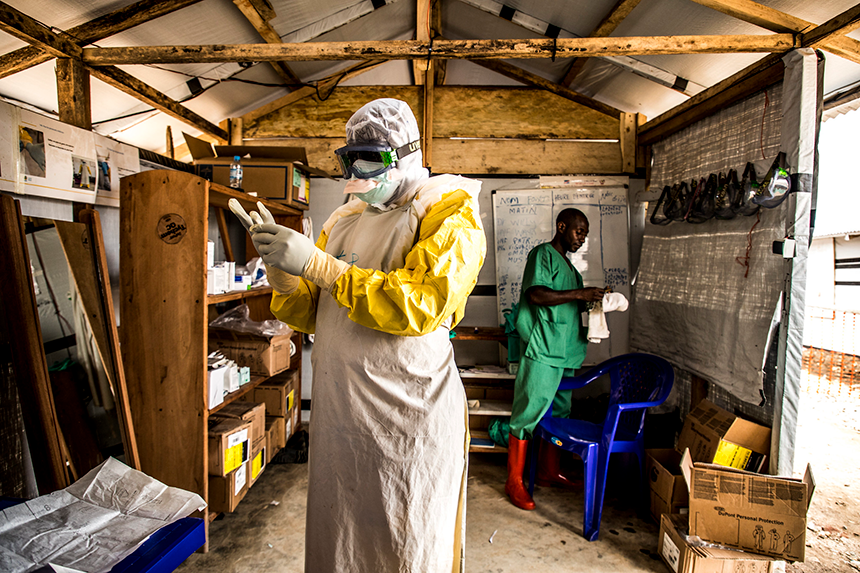antibody Any of a large number of proteins that the body produces from B cells and releases into the blood supply as part of its immune response. The production of antibodies is triggered when the body encounters an antigen, some foreign material. Antibodies then lock onto antigens as a first step in disabling the germs or other foreign substances that were the source of those antigens.
antiviral A virus-killing substance prescribed as a medicine.
clinical (in medicine) A term that refers to diagnoses, treatments or experiments involving people.
clinical trial A research trial that involves people.
control A part of an experiment where there is no change from normal conditions. The control is essential to scientific experiments. It shows that any new effect is likely due only to the part of the test that a researcher has altered. For example, if scientists were testing different types of fertilizer in a garden, they would want one section of it to remain unfertilized, as the control. Its area would show how plants in this garden grow under normal conditions. And that gives scientists something against which they can compare their experimental data.
data Facts and/or statistics collected together for analysis but not necessarily organized in a way that gives them meaning. For digital information (the type stored by computers), those data typically are numbers stored in a binary code, portrayed as strings of zeros and ones.
Ebola A family of viruses that cause a deadly disease in people. All cases have originated in Africa. Its symptoms include headaches, fever, muscle pain and extensive bleeding. The infection spreads from person to person (or animal to some person) through contact with infected body fluids. The disease gets its name from where the infection was first discovered in 1976 — communities near the Ebola River in what was then known as Zaire (and is now the Democratic Republic of Congo).
immune (adj.) Having to do with the immunity. (v.) Able to ward off a particular infection. Alternatively, this term can be used to mean an organism shows no impacts from exposure to a particular poison or process. More generally, the term may signal that something cannot be hurt by a particular drug, disease or chemical.
immune system The collection of cells and their responses that help the body fight off infections and deal with foreign substances that may provoke allergies.
infection A disease that can spread from one organism to another. It’s usually caused by some type of germ.
infectious An adjective that describes a type of germ that can be transmitted to people, animals or other living things.
mortality Deaths. From mortal, meaning deadly.
National Institutes of Health (or NIH) This is the largest biomedical research organization in the world. A part of the U.S. government, it consists of 21 separate institutes — such as the National Cancer Institute and the National Human Genome Research Institute — and six additional centers. Most are located on a 300 acre facility in Bethesda, Md., a campus containing 75 buildings. The institutes employ nearly 6,000 scientists and provide research funding to more than 300,000 additional researchers working at more than 2,500 other institutions around the world.
outbreak The sudden emergence of disease in a population of people or animals. The term may also be applied to the sudden emergence of devastating natural phenomena, such as earthquakes or tornadoes.
pharmaceuticals Medicines, especially prescription drugs.
preliminary An early step or stage that precedes something more important.
therapy (adj. therapeutic) Treatment intended to relieve or heal a disorder.
virus Tiny infectious particles consisting of RNA or DNA surrounded by protein. Viruses can reproduce only by injecting their genetic material into the cells of living creatures. Although scientists frequently refer to viruses as live or dead, in fact no virus is truly alive. It doesn’t eat like animals do, or make its own food the way plants do. It must hijack the cellular machinery of a living cell in order to survive.
World Health Organization An agency of the United Nations, established in 1948, to promote health and to control communicable diseases. It is based in Geneva, Switzerland. The United Nations relies on the WHO for providing international leadership on global health matters. This organization also helps shape the research agenda for health issues and sets standards for pollutants and other things that could pose a risk to health. WHO also regularly reviews data to set policies for maintaining health and a healthy environment.








